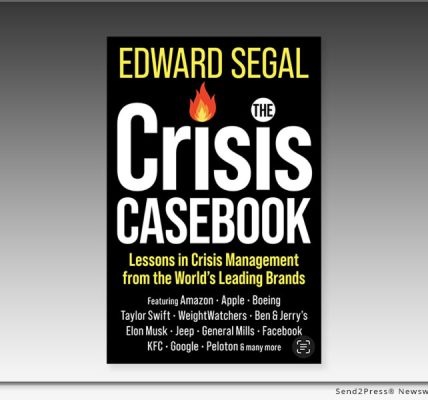The US has sanctioned UN special rapporteur Francesca Albanese – here’s why she’s the wrong target
The United States has imposed sanctions against the UN’s special rapporteur in the Palestinian territories, Francesca Albanese. It’s an unprecedented situation. The US secretary of state, Marco Rubio, cited as the reason her direct engagement with the International Criminal Court “in efforts to investigate, arrest, detain, or prosecute nationals of the United States or Israel”.
The statement also described Albanese’s “threatening letters to dozens of entities worldwide, including major American companies” as an escalation of her strategies. The sanctions were framed as preventing “illegitimate ICC overreach and abuse of power” and as part of Trump’s Executive Order 14203 on imposing sanctions on the ICC.
This raises the question: who are special rapporteurs and why would Albanese’s performance of her role elicit such a strong reaction from the US? Special rapporteurs are independent human rights experts, part of the UN Human Rights Council’s special procedures system established in 1979. There are 46 “thematic mandates” on issues such as extrajudicial killings, enforced disappearances and the environment, and 14 “country mandates”, including in Palestine.
Experts on human rights from academia, advocacy, law and other relevant professional fields are appointed to fulfil a variety of tasks. These include undertaking country visits, sending communications to states about individual cases of human rights violations, developing international human rights standards, engaging in advocacy and providing technical cooperation based on their legal and thematic expertise.
In 1967, 22 years after it was set up, the United Nations established institutional provisions for independent experts on human rights. This happened first in 1967 when it appointed an ad hoc working group of experts on apartheid and racial discrimination in southern Africa. In 1968 the same group of experts was appointed to investigate “Israeli Practices Affecting the Human Rights of the Palestinian People and Other Arabs of the Occupied Territories”. This is still in place today.
Neither South Africa nor Israel allowed experts to enter their territories to inspect their human rights record at the time. But in 2003, nearly a decade after it first held democratic elections, South Africa issued a standing invitation to all thematic special procedures, meaning they committed themselves, at least in theory, to always accept requests to visit from rapporteurs.
Attacks on individual rapporteurs
Albanese, a specialist in international human rights law, is the eighth rapporteur since the creation of her mandate in 1993. She was appointed to this pro bono position in 2022 for three years, and her mandate was recently renewed for another period of three years.
It was her most recent report from June 30 which led to her being sanctioned by the US. The report focused on the role of the corporate sector in “colonial endeavours and associated genocides” and named over 60 companies as “complicit”.
A host of institutions and leading human rights figures have come to her defence. Agnes Callamard, a former special rapporteur on extrajudicial killings, now the secretary general of Amnesty international noted the “chilling effects for all special rapporteurs” of the US decision. Top UN human rights officials denounced this dangerous precedent and called for its reversal.
In February 2024, the government of Israel declared Albanese persona non grata in response to her remark that “the victims of the October 7 massacre were not murdered because of their Jewishness, but in response to Israeli oppression”. As with the newly imposed sanctions, she called this step a distraction and called upon the world to keep their focus on Gaza.
Diplomatic immunity
Special rapporteurs are granted diplomatic immunity which, in theory, should enable them to speak up or write critical reports without the fear of reprisals. But in 1989 and 1999 the ICJ had to intervene with an advisory opinion on two cases when this status was jeopardised after the home countries of two special rapporteurs tried to restrict their freedom of speech. This involved Romanian national Dumitru Mazilu, tasked with writing a report on “Human rights and youth”, and Malaysian national Dato’ Param Cumaraswamy, special rapporteur on the independence of judges and lawyers.
Special rapporteurs wrote a collective letter denouncing the second case, when the Malaysian government filed several legal proceedings against Cumaraswamy. The body of experts called this “judicial harassment of a special rapporteur” and “a challenge to the status of the United Nations as a whole, its officials and its experts on mission”.
Special rapporteurs occupy an ambiguous institutional position. They take their mandate from the Human Rights Council, but they act in their personal capacity, and hence are not considered to be UN officials. In practice, they need to balance relations carefully between the UN secretariat, civil society, state representatives and, at times, their own countries.
The advisory opinions helped clarify that it was the secretary general, as the head of the United Nations, that entrusts them with the privileges of diplomatic immunity. The arrangement also leaves the door open for national courts to disagree with the secretary general. This enabled individual countries in some cases to exercise some form of control over their own nationals.
The recent attack on Albanese adds to the broader budgetary crisis of the UN, as the Trump administration is withholding funds of about US$1.5 billion (£1.2 billion) in addition to other countries such as China, Russia and Saudi Arabia. These are serious challenges for the UN human rights and humanitarian aid programmes. As past cases of attacks against individual rapporteurs have shown, it is important for all rapporteurs to stand together as one body and defend the integrity of the system as a whole.
Despite these attacks on her integrity and person, Albanese maintains faith in the human rights law instruments. As she stated during a public talk I attended at SOAS University of London in November 2024, we are yet to unlock the full potential of these instruments. This can only be done as a collective.
Alvina Hoffmann has previously been funded by the Economic and Social Research Council (UKRI).


